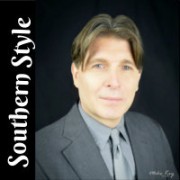Candidates around the cracker barrel
It is the time of year when towns across America find political signs for local campaigns filling the right-of-ways and yards as fundraising barbeques and door-to-door canvassing is in full swing.
For many years, I have had the pleasure of living in small town America, in a community that up until this decade enjoyed amiable competition on occasion for the available council seats. You had men or women give their vision of what they wanted to do and then the voters came out at the polls and picked the vision they preferred.
Our little town was even less competitive than Mayberry in the episodes where “The Andy Griffith Show” centered around the council and sheriff’s races. I remember years ago as a newspaper reporter gathering three council candidates with bottles of Coca-Cola in or near their hands as two faced each other off in a game of checkers on an old cracker barrel while the other one watched. All laughing and joking throughout. That is the way it was for decades of our history.
Sadly, the advent of social media and those that use it has transformed many uplifting positive communities into a sea of dissatisfaction fueled by the egging on of candidates who are seeking any opportunity to gain a bit of attention for their campaign. Negativity, slights, one-up-man-ship seem to now be the approach of this decade’s group of candidates.
There was a time in our community, if a candidate went around bad-mouthing their opponent, that was a sure loss in the making for the bad mouther. Our great folks were just not going to stand for it and did not wish to be led by those who would do it.
Now though I am seeing candidates who make a sport of trying to destroy or hurt others through social media or other means who are applauded for their efforts. They are given pats on the back for the evil done. While this is certainly a norm in national and even some state elections, our small towns do not need this type of behavior among our leaders.
We should be the beacons of civility, the populace of principles, the sages of political strategy, by allowing only the best to serve us. Small town offices often are little more than volunteer positions that require hours of dedication, training, reading, creating relationships all to benefit our communities. Other leaders want to partner with leaders they can depend upon to follow through with regional and state led efforts at the local level. That takes character and solid leadership.
I have heard said “Well. it’s just campaign rhetoric,” but it seeps into governing as well.
As the elections are in full swing, and you pick the candidates you want to lead, look beyond the nice family photos, the slick election mailers, and look to the actions and the heart of the candidate not as they portray their actions in social media and commercials but as they conduct themselves in real life.
I long for the day of three men or women who state their visions and let us decide without running the other candidate down.
I lived it before not so long ago. I miss it. If I could trade this social media world for that again, I would flip the switch in a heartbeat.
Maybe we all can flip the switch ourselves in our respective towns by earnestly choosing the candidates that are not trying to win a social media popularity contest but will actually do the job to serve. When we go in our voting booth and cast our ballot for good decent civil people who have our interests at heart, maybe in our little way, that will be taking us all to a better small-town experience, no matter the size of our community.


